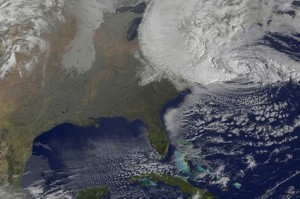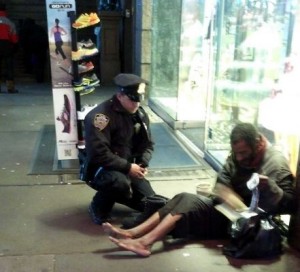 A candidate for New York State Assembly in Brooklyn 20 years ago insisted on inserting a dried sponge with his name emblazoned across it into his final campaign mailing, one of his former advisers once told me. The sponge was one of those campaign chotchkies candidates love and consultants roll their eyes at — along with branded magnets, emery boards and pill cases — and this particular aspirant for public office was convinced it would put him over the edge in a tight contest.
A candidate for New York State Assembly in Brooklyn 20 years ago insisted on inserting a dried sponge with his name emblazoned across it into his final campaign mailing, one of his former advisers once told me. The sponge was one of those campaign chotchkies candidates love and consultants roll their eyes at — along with branded magnets, emery boards and pill cases — and this particular aspirant for public office was convinced it would put him over the edge in a tight contest.
The mail never arrived, and the candidate lost.
It wasn’t until a week later that it became clear why. A spell of intense humidity expanded the sponges within their envelopes inside the post office, putting their weight above that allowed by the allotted postage. The near-bursting envelopes were returned to the campaign headquarters by the hundreds for weeks after the election stamped in red ink: “Postage Due.”
Such are the intangibles of a political race.
Hurricane Sandy is barreling upon New York as I write this, and it is yet to be seen how much the severe storm may affect our upcoming elections. Significantly, I would guess, judging from Sandy’s ferocity, but in ways impossible to handicap.
It’s an awful thing to talk politics while a natural disaster is looming — this is the time to prepare and to pray for families living along the coastline — but an important Election Day is only a week away and speculation over the storm’s political impact is both irresistible and warranted.
One immediate implication: Sandy has frozen the news cycle in place for a large swath of the nation. It will be virtually impossible to introduce any new, significant news before the end of this week, if then. Any news that was growing steam — like the Benghazi controversy — will simply vanish from the air in much of the nation. Monday’s coverage in the Northeast will mark preparations for and predictions about the storm; Tuesday and Wednesday will be about Sandy herself; and then there will be the aftermath coverage — the clean up — which will run for more than a week.
That means whoever had momentum in his or her race before the storm will likely keep it through the weekend at least. The only candidates who can benefit during the storm are incumbent executives — the president, governors, mayors, town supervisors — who will have the opportunity to demonstrate their leadership skills in a crisis. Expect President Barack Obama to be on the ground for post-storm damage assessment photo ops in Pennsylvania on Wednesday or Thursday.
A second implication: Many underfunded campaigns, like the Colonial soldiers at Bunker Hill, wait until they see “the whites of their eyes” before firing in the news media. That is, they hold until the very end of a campaign, when the public is paying closest attention, to go up on television with their limited advertising dollars.
Blackouts through the northeast will erase that messaging. They may be the best-made political spots since Reagan‘s “Morning Again in America” commercials, but they will not be seen. Even households with electricity will not see the ads they were supposed to. Twenty-four-hour news networks like Fox and CNN, where a great deal of political advertising is placed, will likely run live coverage for days with limited commercial interruptions.
Political mail carefully planned to arrive each day for the final week of a campaign will more likely land in mailboxes with a thud in one or two bunches, as the Postal Service adjusts its bulk delivery schedules. That mail’s desired effect on voters will not occur. There will be fewer robocalls, too — I can hear the sighs of relief — as political phone calls will be deemed inappropriate for the next couple of days.
The rest of this column is available at Newsday and Newsday Westchester. Thanks for reading — and stay safe.







